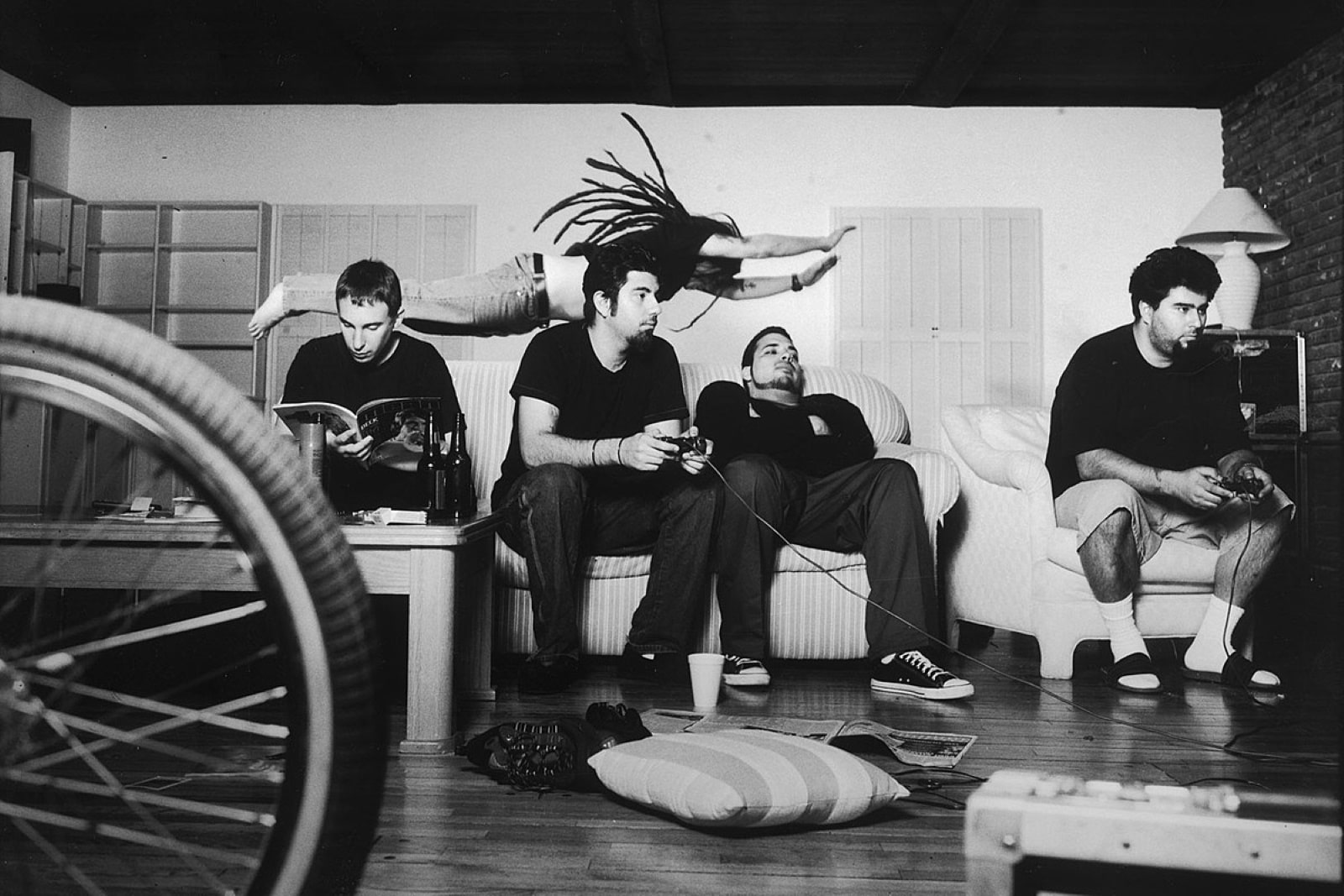DEFTONES have revealed the full stream of their reimagined version of iconic album White Pony, compiled on the new 20th anniversary reissue that can be grabbed through all major streaming services HERE. Listen below and scroll down to see all videos that accompany this special release.
There’s a lot of ground covered here. You’ll want to either sit down or take off for producer Salva’s brutal, malfunctioning trap beat spin on ‘RX Queen’, or electronica duo Phantogram‘s dark dream-pop take on ‘Street Carp’. After all these years, the songs still stand up, even in a different dimension. ‘Black Stallion’ can either be listened to as the twisted inner monologue of a masterpiece, or a standalone rattling gun of gnarly and weird electronica. / NME
It perhaps helps to consider what this album could have been: a veritable Frankenstein’s playlist of takes on Deftones. Considering that each song is helmed by a different producer/DJ/artist, the uniformity of vision is impressive. As with the original, Black Stallion is an album of competing extremities held together in a state of perfect equilibrium. It is certainly true that White Pony needed no augmentation. In its original incarnation it sounds as breathtaking and innovative now as it did in June 2000. To weigh Black Stallion against it would not only be unfair, but also miss the point. What we have here is a whole new set of parallel hoof prints to marvel at. / Kerrang
Black Stallion is a remix album that’s assembled to be consumed as an album of its own, not just a collection of “extras,” and the fact that all these various remixes work so well really speaks to how timeless and varied White Pony was in the first place. These songs will of course all sound familiar since they’ve been out for 20 years, but Black Stallion offers so much more than nostalgia; it makes White Pony feel new again. / BrooklynVegan
These are hugely impressive moments, but not a single contributor – from Linkin Park’s Mike Shinoda to Squarepusher – drops the ball here. White Pony is an absolutely crucial record; we’ve all known this for a couple of decades. But with Black Stallion, Deftones and their assembled cast have created something that truly adds to its legacy. / Louder Than Sound
It’s no secret that remix albums are often tricky affairs, especially when meshed with beloved rock songs. Luckily everything off Pony’s dark twin is enjoyable, if not essential sounding. Overall, it’s a fun curio worth exploring and saving a few of its more ambient moments. / Clash
While a lot of people will naturally be attracted to the sexy sparseness of Mike Shinoda’s “Passenger”, replete with Maynard James Keenan of (Tool, Puscifer, a perfect circle) and his most naked vocals ever, still, you wonder why MJK or one of his Puscifer pals aren’t present here. However, it’s “Korea” by Trevor Jackson that is the showstopper of the later tracks. The album closes with a ten-plus minute drone on “Pink Maggit” by Squarepusher that is sublime. It’s cool to see the Deftones get their wish come true twenty years later and end this year on this heavy, and not heavy note. / GhostCultMag
Viewed on its own, the often captivating Black Stallion is an effective electronic record, including the standard peaks and valleys – like when DJ Shadow’s patiently hooky and glittery take on “Digital Bath” is followed up by Blanck Mass’s beautifully ugly industrial rejiggering of “Elite”. Additionally, multiple tracks bleed into each other, suggesting a kind of internal coherence despite being comprised of eleven different artists. The productions themselves range from great to exceptional, so how much mileage a listener will get out of this album, then, hinges less on their opinion of Deftones than of ††† or Team Sleep. Perhaps Moreno hinted as much at the beginning of Ohms: “We’re floating off in the ether / We’re miles beyond the sound”. / The Line of Best Fit
With a different artist’s interpretation on every track, some of the approaches fit very well in the context of the original White Pony. Using electronics to add to the ambience of the original tracks, these new versions feel like creative extensions that pay tribute to the album whilst still giving it a fresh take. At the same time, other tracks can sound almost unrecognisable from the song that came before it, using electronic elements to fully disconnect itself from the original. This results in some of the remixes feeling not all that essential, stripping most of the material away to make room for more electronics. With a wide range of artists collaborating on this project, it’s no surprise that the end result is so varied but there’s enough here to at least peak the interest of long-term fans of this 20-year old classic. / Distorted Sound










